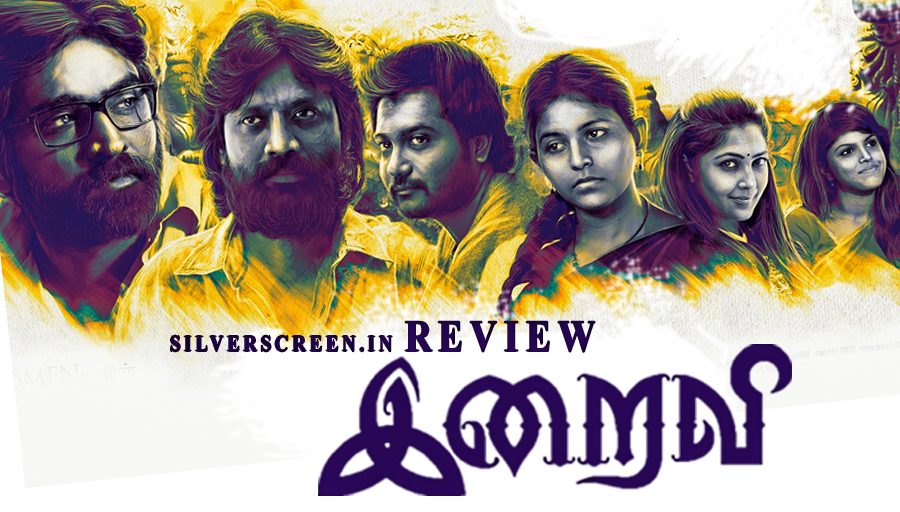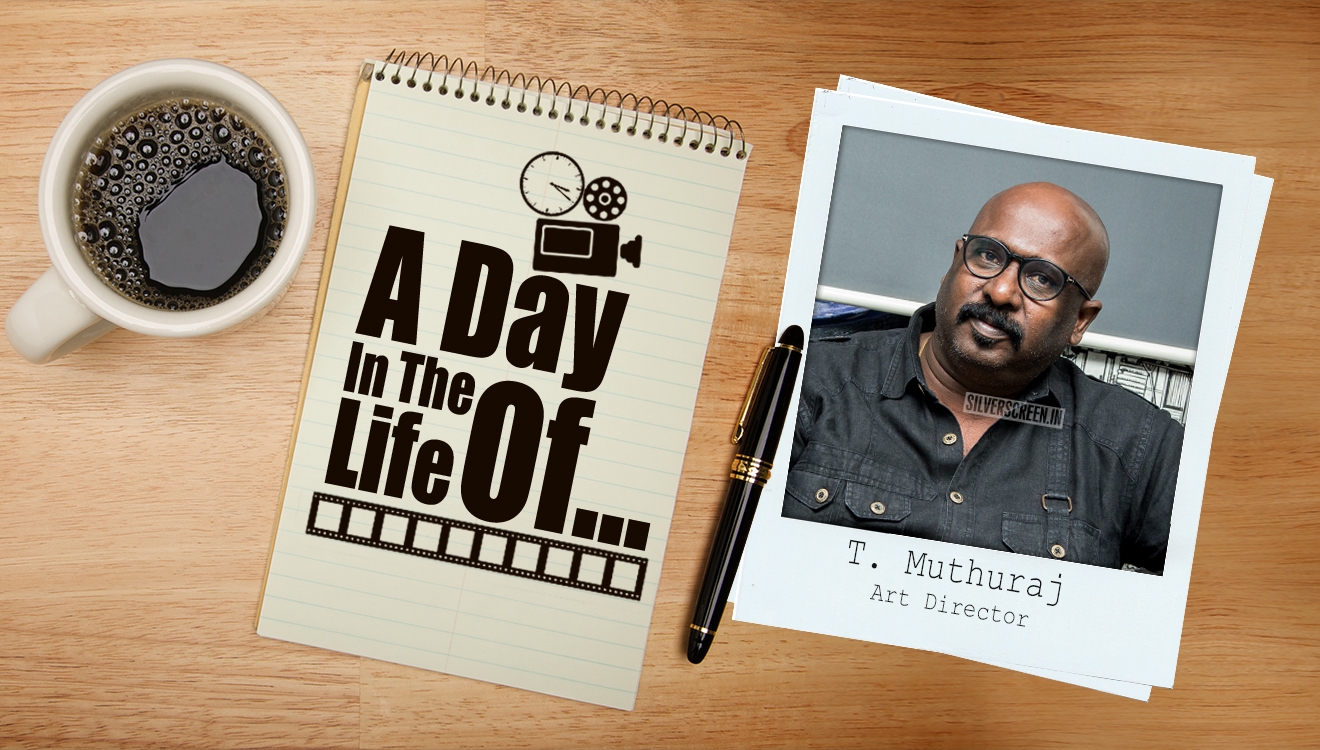Spoilers Ahead
In Karthik Subbaraj’s Pizza, two people decide to get married, but only after their first child announces its arrival. Never before had a Tamil movie celebrated a live-in relationship so romantically; or without judgement. Subbaraj’s Jigarthanda was set in a violent masculine world. The sole woman was young and from a small-town. She is taken for a ride by a selfish, city man. But, she’s as capable of evil as he is. When she gets her chance, she pays him back with his own coin.
With Iraivi, Subbaraj creates a masculine world once again. This time, the focus is supposedly on women. The only problem: it’s women through the eyes of men.
*****
Unlike Subbaraj’s last two films, Iraivi has a predictable storyline. There are a number of well-executed, poignant moments in the 150-minute long film. It has six main characters, but revolves around the three male leads, and the friendship between them. We see their impulsive actions, their muddled thoughts, and their loud masculine egos.
In Iraivi, men are imperfect human beings who make mistakes; women are the flawless goddesses who forgive them. Inevitably then, the characters are unidimensional and the storyline relies on spoon-feeding.
At times, the film resembles a standard Arya-Santhanam bromance. But, the mood here is different; the air suffused with despair and anger. The men aren’t everyday IT professionals. They have unconventional jobs like filmmaking and sculpting. There are instances of friends robbing and murdering for each other. Sometimes, betraying and murdering each other. Things that Santhanam would never do to Arya.
And yet, deep down, these films share a similar outlook when it comes to gender. Beneath a foil that presents itself as gritty and progressive, Iraivi is a movie that upholds the same old morals and beliefs.
*****
Arul (SJ Suryah) is a promising young director whose career is in shambles because a producer refuses to release his latest film. The disappointment drives him to drink, much to the dismay of his wife, Yalini (Kamalini Mukherjee), a city woman, and his father (Radha Ravi), a renowned artisan. Yalini barely talks to her frequently inebriated husband. When he tells Yalini, “Darling, I love you!” it sounds phony. The couple’s emotional moments are intense, but it’s hard to say whether it’s him talking or the alcohol.
Yalini suffers quietly. At one point, she threatens to leave him. But she never goes far from him. “This concept of liberation is so hollow,” she tells a colleague who suggests that she actually try and enjoy being single.
Like a hundred female characters in literature, cinema and television, built around the epic character of Savitri, she is docile and cooperative. In one scene, she even begs the producer for Arul’s sake.
Meanwhile, young Ponni (Anjali) is different. Unlike the rich and educated Yalini, Ponni grew up on Kollywood romances – Kamalhaasan films, Thala and Thalapathi. She is ready to devote her life to her man. Ponni’s first meeting with Michael (Vijay Sethupathi) is at a traditional ceremony where they don’t speak to each other. His eyes are fixed on something invisible. She takes one look at him and declares that he’s the one for her.
From the beginning, she is determined to be happy. She dances at her wedding with abandon. She is full of giggles after their first night. In a well-written scene, Michael warns her that this would be a loveless marriage. Shaken, she coils up in bed. But she isn’t ready to give up on life. The women in her family tell her, “Change him. Use your brain. You are a woman.” And she obeys. Ponni is never wrong. Her courage and reason conquers the men around her, men who constantly make bad decisions. Her flawlessness is what drives the movie forward. She is the film’s Kannaki.
Malar, the other woman in Michael’s life, is a rich, upper-class artist. She’s also a widow, and tells him that their relationship is purely physical. He begs her to marry him, and even sends his father to her with a marriage proposal. But she dismisses it. Perhaps because he is from a lower-class family, or because she doesn’t want to be a wife again.
What is clear though is that the film can’t just have a fiercely independent woman with an existence of her own. Subbaraj has to add a quick shot of Malar wiping her tears, as he rides away on his bike. Reminiscent of those internet memes with a still from a Dhanush movie, and a deluded caption, “She might ask you to go away, but she never stops loving you”.
*****
In Padmarajan’s 1987 movie Thoovanathumbikal, the scion of a wealthy upper-caste household falls in love with a young prostitute from a family of lower-caste fishermen. She admits to being in love with him, but refuses to marry him. They continue their affair secretly, until it becomes a threat to his social status. At that point, she backs out quietly, after acknowledging her eternal love for him.
This movie sank at the box-office. Yet decades later, Thoovanathumbikal’s female protagonist, Clara (Sumalatha), had become the Malayalee man’s ultimate romantic fantasy. Clara’s selfless love for her true love was revered. Eternal sacrifice and eternal love came together in this portrayal of the ideal woman.
There are striking parallels between Thoovanathumbikal and Iraivi in their portrayal of flawless women. Women like Savitri and Kannaki who cannot have human emotions, cannot be ‘selfish’ and want things for themselves.
Yet another striking similarity is the presence of rain in both these movies. Rain lashes on the screen, like a shorthand for emotional turbulence. In Iraivi, rain makes an appearance in almost every scene, quietly witnessing the characters’ trauma.
*****
The film’s portrayal of Jagan (Bobby Simhaa), a soft-spoken and unpredictable artist, is problematic. In the first scene, he is seen hitting a classmate who misbehaved with a girl. Unlike his friends, he makes attempts to understand his mother and all the women around. He wonders, “Why do women let themselves to suffer so much?” He admonishes his friends when they say that women exist only to cook, clean, and make children for men. When he falls in love with a woman, he treats her with respect.
Yet, Iraivi has far more screen time for Arul’s drunken banter than for Jagan. The film ruthlessly judges Jagan. The crucial ‘big revelation’ sequence towards the end appears farcical for this reason. Whatever the movie had been trying to build up till then, falls flat at that point.
*****
Iraivi will probably be best remembered for SJ Suryah’s performance. Suryah fleshes out every ounce of depression and anger his character feels. Anjali, who is at her subtle best, is also outstanding. The script rarely gives her great moments, but she grabs the spotlight from her co-stars with stunning performances. Also brilliant are the film’s art, camera and sound departments.
*****
Recommended
When the blooper and ‘Making of Iraivi’ videos were released, there was one strange thing. Despite being a film about women, the actresses weren’t a major presence in any of the videos. The one exception was when the director talked about an actress who couldn’t ride a scooter or drive a car. Even at the film’s audio launch and promotional events, there was constant talk about the film’s leading men, and their camaraderie behind the camera. Women, were absent. And before the film’s release, Twitter was flooded with photos of men posing with the Iraivi in their life – their mother, sister, or wife.
Lost in its idol-making of Savitri, Kannaki, and other idealisations, Iraivi doesn’t really see women. Women who aren’t mothers, sisters, or wives; are nobody’s goddess. What happened, we can’t help but wonder, to the plain, unlabelled women, as capable of flaws, humanity, and villainy, as of being good? Where are the non-idols?
*****
The Iraivi review is a Silverscreen original article. It was not paid for or commissioned by anyone associated with the movie. Silverscreen.in and its writers do not have any commercial relationship with movies that are reviewed on the site.



